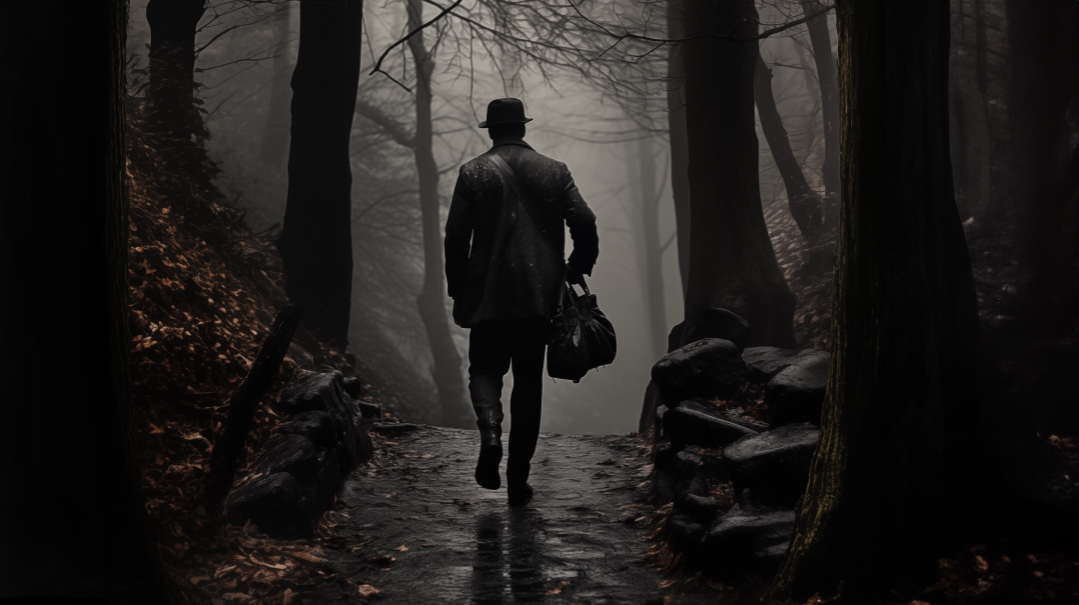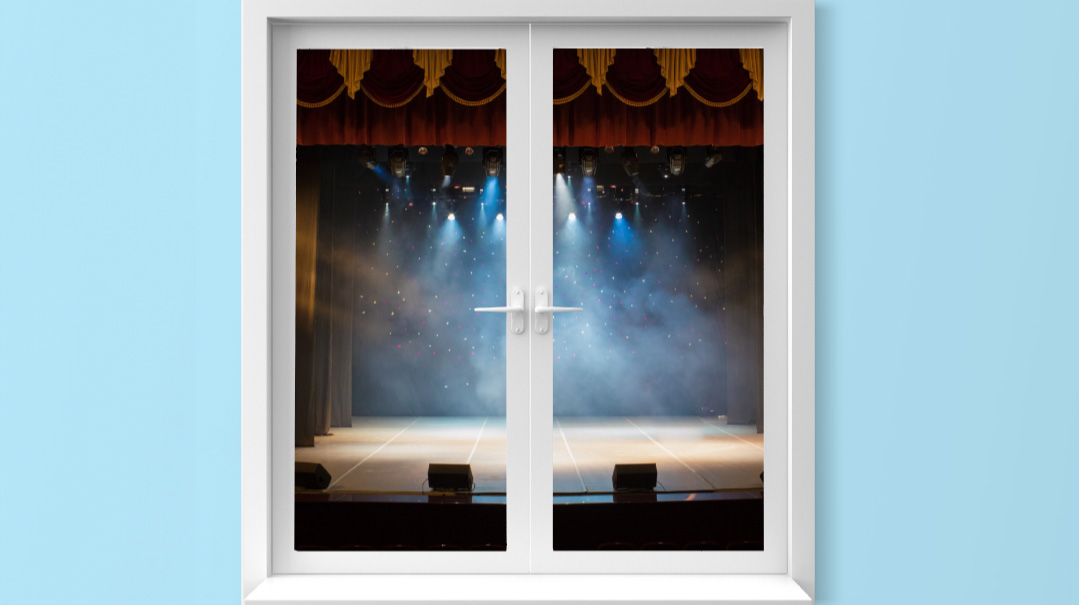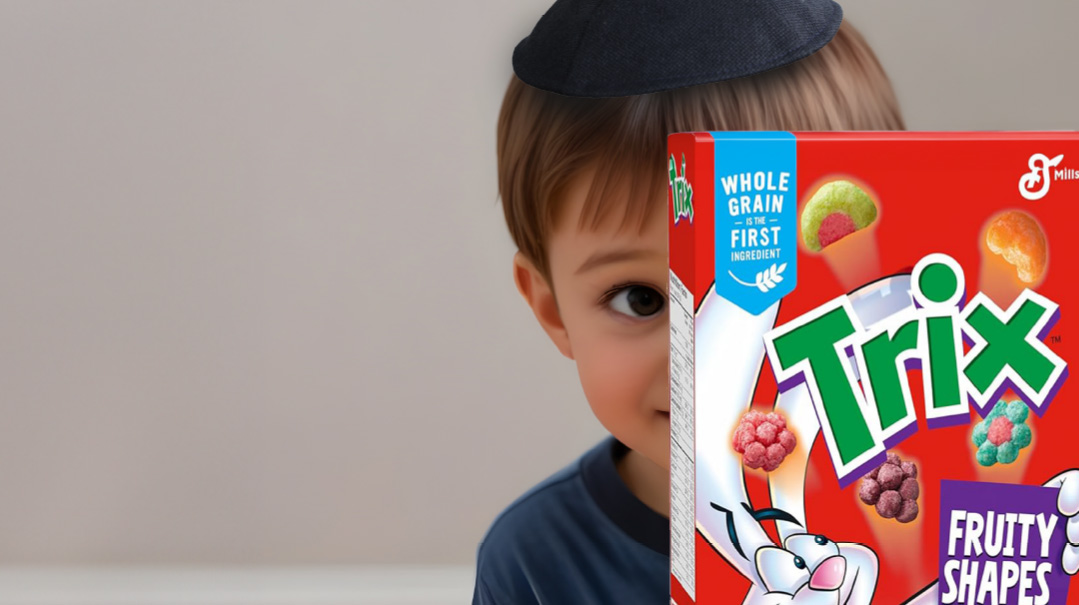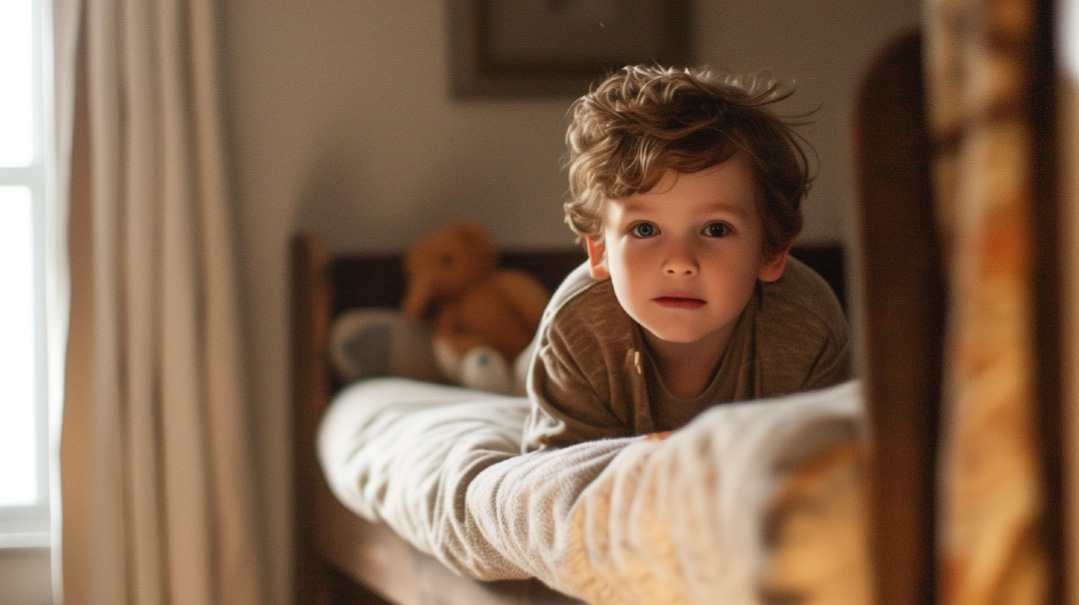Hero… Unsung
| December 12, 2023“We don’t like Jews,” my shuttle-mate said, matter-of-factly

I was tired. Very tired. The kind of tired that wants to be alone with itself. The too-tired-to-think tired. I was traveling home from my friend’s house in South Carolina after a lovely Shabbos together. We’d stayed up talking the better part of Motzaei Shabbos, as we’d taken to doing every couple of years. This was our idea of a retreat. Then, Sunday at seven, a mostly empty shuttlebus picked me up to drive me to Charlotte Douglas Airport in North Carolina.
I am not a morning person in the best of times, and this was certainly not the best of times, but when from behind me I heard soft voices speaking in an old European accent, I had to investigate. Turning to see who was sharing the shuttlebus with me, I was greeted by the smiles of an older couple; crisp white clothing, wrinkled skin, at ease with each other, and nonchalant about my presence. I smiled back and turned away, wanting nothing more than to sit and travel in solitude. But I am Lubavitch, and as such, I have an eternal obligation. The Lubavitcher inside me started making noises and the familiar, inner conflict began: Reach out… no, you’re tired… reach out… no, you’re allowed downtime… reach out, what does it take already? Okay, fine!
I turned back to the couple and began to converse.
“Hey there, good morning. Where are you going?” I asked, attempting to expedite my duty and return to my much-desired reclusion.
Well, it turned out that they, too, were traveling to Toronto, that they live there, as I do, and that they were in South Carolina to visit their son. So much for not wanting to get involved.
“Which shul do you go to?” I asked, risking the assumption that they were as Jewish as they looked.
“What makes you think we are shul-going Jews?” the husband rejoined, and it sounded as though he took umbrage at my presumption.
“Oh, forgive me,” I sputtered, “I didn’t mean to assume….”
Then he smiled brightly, amused at my discomfort. “We’re not affiliated,” he said. “We don’t bother with any of that. Haven’t for a long time.”
I nodded and racked my addled brain for words of compassion. You see, in my books, anyone older with a European accent is above judgment or criticism.
“Where abouts do you live in Toronto?” I tried again.
“Why? Do you know the city?”
“Yes, I live there.”
“We’re at Eglington and St. Clair. And you?”
“Thornhill.”
“Ahhh,” he said, and was silent again.
“You know,” I ventured, “I know the Chabad rabbi who lives near your area.”
“Thank you, but no.”
“Okay.” I shrugged. “Just thought I would—”
“We don’t like Jews,” my shuttle-mate said, matter-of-factly.
“Oh?” I must have looked taken aback, because he continued.
“Yes. Jews are greedy, competitive, loud, and abrasive.”
I smiled. “We certainly can be all of those things,” I agreed, “but surely we have some good qualities?”
“Not enough for us.” He shrugged, and concurred with his wife who was holding his hand and gazing warmly toward him.
Oh, well, I thought, at least I tried. I turned my face back to the road, nursing a wounded confidence at my failed attempt.
And then he cleared his throat. “Hey, do you wanna hear a maaseh?”
“Sure,” I replied, wondering how wise it was to let this self-hating Jew delight me with a story from his life. I braced myself.
“In 1978,” he began, “President Jimmy Carter put together a commission in Washington and called it ‘The President’s Commission on the Holocaust.’ You’re probably too young to remember. Right?”
I nodded.
“This commission was charged with the task of going overseas and recording the destruction of the Jewish presence in Europe, in order to design a fitting memorial in the United States for the victims. This commission laid the foundation of the Holocaust Museum in Washington today. Elie Wiesel was part of it, Yaffa Erlich, too. You’ve heard of those people, surely?”
“Of course,” I answered. “Who hasn’t?”
“You’d be surprised,” came his sad response. “Anyway, I was part of the commission as well.”
“Oh!” I felt my eyebrows shoot up in surprise. “What’s your name? Maybe I’ve heard of you, too?”
He laughed and shook his head. “No, you’ve never heard of me. I didn’t do anything famous. I just tried to live my life quietly after so much was taken from us.” He glanced earnestly at his sweet-mannered wife, who threw him another tender look, which contained within it many, many years of solidarity and love.
“Anyway,” he continued, “I went as the official photographer. My job was to take pictures of the remnants of Jewish life in Europe. Piles of tefillin left in an abandoned synagogue, bullet-ridden walls of another shul, and any other obvious signs that Jews had once lived here. We traveled around in a motorcade, from town to town, or shtetl to shtetl, where not a single Jew greeted us, but their old buildings, complete with Torah scrolls and other artifacts, lay about gathering dust.
“On one of those days our caravan of cars drove into a smallish town surrounded by mountains lush with green forests. The view was spectacular. The mayor of the town greeted us, with the other dignitaries, and led us to the old relic of a shul where I was to take the pictures I was commissioned to take. But before we entered, there was a commotion coming from the sidelines, and a man — a townsman, around 35, maybe 40 — broke through the crowd and fell at our feet. To say we were surprised is an understatement. This had never happened before. The man was overcome, he was trembling, he grabbed one of our hands and kissed it, all the while crying, struggling to compose himself. We stood in stunned silence for a while, not knowing what to do, until finally, he stood up and begged to be allowed to speak.
“He spoke through an interpreter for those who did not speak his language, and he told us the following tale: ‘At the start of the war,’ he said, ‘when everyone still believed that the furor would blow over, the Germans were heading this way. All the Jews of the town decided that the best thing for them would be to hide out in the forests, on the mountains, until this lunacy would pass. They packed as much as they could carry, abandoned their homes, and trekked out to the surrounding forests to try to survive there.
“ ‘Soon after they left, winter set in. One night there was a bad snowstorm. Really bad. You could hardly see in front of you for the dark and the blustery, snow-filled wind. Everyone huddled in their homes, grateful for the fire and warmth. In one home, an expectant woman suddenly went into labor. Getting a doctor was out of the question on such a night. It would be impossible. The family tried to help her as much as they could, but the labor was long and the mother was in tremendous pain. It was clear that there were complications above the skill set of the gathered relatives.
“ ‘The woman’s husband — father of the child struggling within his mother’s womb — put on his coat and boots and abruptly left the house. Fighting the freezing, cyclonic gales, he pushed through to the outskirts of the town and carried on to the paths leading up to the forests. Once he got halfway up the mountains, deep inside the woods, he cupped his mouth and called out, “Juden, Juden, please! If there is a doctor among you, I beg you, please! My wife is in labor. She is struggling. Please, come on down and help us!” He carried on calling out into that bitter night until he was rewarded.
“ ‘A man, a Jew, appeared in front of him from the surrounding snow-topped thickets and presented himself. “I am a doctor,” he said. “Lead me to your wife.” Together, the two men climbed down the treacherous mountain and made their way through the snow-filled, darkened streets until they came to the house where the poor, laboring woman lay, weak, with a low pulse and a drooping spirit. The Jewish doctor took command of the situation. He washed his hands and calmly got to work, soothing the mother and resolving the difficulties. Within a short while, the baby was born, the mother placated, the family festive and happy.
“ ‘The doctor stayed with the family for a few hours, just to make sure there would be no further complications and then, do you know what he did?’ We all shook our heads, wondering what the doctor might have done.
“The man continued, ‘He put back on his coat, tied his scarf around his head, and, wishing the family well, he walked out, through the back door. He must have retraced his steps through the streets of the town and back up the mountains to his cold, wet life of hiding.
“ ‘And now, I would like to introduce myself. I am that baby. I was brought into this world by a true man, a Jew, who took no reward for his performance, and probably got swallowed up in the impending conflagration.’
“No one spoke for a long minute, and then the townsman continued, in a voice filled with emotion: ‘All my life, my mother has told me, “When you see a Jew, bow down to him. Kiss his hand and tell him thank you, for his people saved you and me from certain death.” But, until this day, I had never seen a Jew…. Not in the whole of my life!’ ”
Something passed between us, the photographer and I, on that shuttlebus headed for the Charlotte Douglas airport in North Carolina, on that early, crisp Sunday morning. We stared at one another: Two Jewish warriors, on opposite sides of the battle, each staking claim on our shared nation. His eyes, sharp and challenging, mine… tear-filled.
I swallowed, and fighting to control my voice, I postured, “And you? Do you still dislike us so much? After such a tale?”
He dropped his shoulders, which I hadn’t noticed were high. “Yes,” he said in quiet defeat, as though he knew the truth, but couldn’t admit to it. “I can’t stand us. We are greedy, competitive, and obnoxious.”
I smiled through tears and turned around again to face the long, empty road ahead. Inside me, one sentence kept swiveling around my head: There is none so blind as he who will not see.
But then, my imagination filled with scenes of snow-topped woodlands, draped over mountains, a sleepy little town at their feet, chimneys gently puffing out smoke, lights streaming out of windows onto snow-covered streets, and through all this nocturnal beauty walks a man, a doctor, a Jew.
Head bent against the wind, he struggles with each step, creating huge, knee-deep footprints that get covered within seconds; but inside him he is glowing.
Will we ever know his name?
Not likely. Just another faceless, nameless, hero. A Jew who taught us, by example, how to be a man — in a time and place where there was no room for humanity.
This is what we are. This is what a Jew is. And even if my old photographer friend refuses to acknowledge it… deep down, he knows.
(Originally featured in Family First, Issue 872)
Oops! We could not locate your form.







